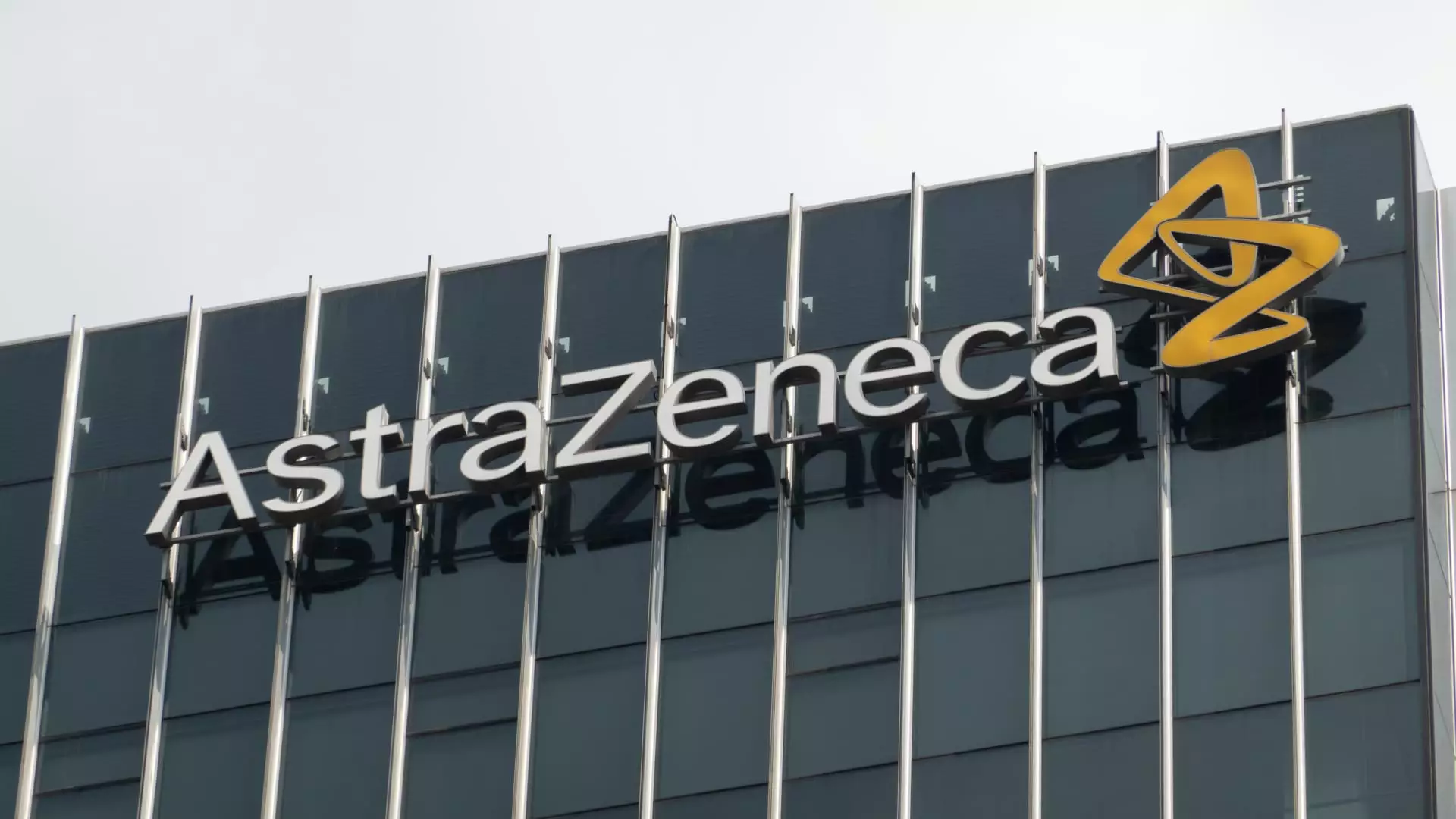In a surprising display of strategic repositioning, AstraZeneca announced a staggering $50 billion investment in U.S. manufacturing and research infrastructure by 2030. This move isn’t merely a business expansion; it’s a reflection of the shifting tectonic plates of global health politics and economic priorities. While at first glance it signals a firm commitment to innovation and job creation, closer scrutiny reveals a complex web of motives that are less about public good and more about strategic power plays amidst geopolitical uncertainties.
The cornerstone of AstraZeneca’s ambitious plan involves establishing its largest-ever manufacturing plant in Virginia, focusing on its metabolic and weight management portfolio. This facility aims to leverage AI, automation, and data analytics, implying a forward-looking embrace of cutting-edge technology. Yet, the underlying question remains: how much of this investment genuinely serves societal health needs versus merely fortifying corporate dominance? The truth is, such projects often prioritize securing market share and influence over the long-term societal benefit, especially when driven by a desire to insulate profits from international trade disputes.
Crucially, AstraZeneca’s expansion also aims to leverage the U.S. market’s lucrative potential, given that over 40% of its revenues come from America. With the company’s ambitions to reach an $80 billion annual revenue, the focus on the domestic market seems less about global health imperatives and more about consolidating U.S. dominance. This raises concerns about a broader trend where pharmaceutical companies align their strategies with nationalistic policies—sometimes at the expense of transparency and equitable access to medicines.
Narrowing the Focus: A Shift in Industry Power Dynamics
The pharmaceutical industry’s recent surge in U.S. investments signals a degree of vulnerability and opportunism not often acknowledged publicly. The Trump administration’s aggressive stance on trade tariffs, particularly the threatened 200% levies under Section 232, appears to be a catalyst for this reshuffling. Many companies, including Novartis, Sanofi, Roche, and U.S.-based giants like Lilly and Johnson & Johnson, are reshaping their operations, ostensibly to hedge against tariffs and political disruptions.
However, this pivot raises critical issues about the sustainability of such a strategy. These companies are essentially gambling on a political landscape that remains volatile and unpredictable. The purported goal of reshoring manufacturing—ostensibly motivated by a desire to ensure supply chain stability—is likely a blend of economic necessity and political savvy. But at what cost? The timeline for bringing medicines to market is long—often three to four years—making such rapid commitments appear rushed and potentially wasteful if policy directions shift.
Furthermore, the U.S. is effectively becoming a fortress hub for pharmaceutical innovation—an understandable but controversial development that could deepen global health inequities. While this ensures access to cutting-edge treatments for Americans, it risks creating a frayed global supply chain that could threaten drug availability worldwide, especially in regions lacking robust local manufacturing capabilities.
Center-Left Perspective: Navigating Between Innovation and Equity
From a centrist liberal vantage point, AstraZeneca’s decision embodies the tensions between economic nationalism and global health responsibility. While job creation and technological innovation are undoubtedly positive, they should not overshadow concerns about accessibility and fairness. Heavy investment in the U.S. market, especially amidst ongoing debates about drug pricing and patent rights, risks perpetuating a system where life-saving medicines remain commercially exclusive rather than universally accessible.
Additionally, the planned move to possibly list on the U.S. stock exchange, at the expense of London’s markets, underscores a troubling trend of financial nationalism trumping broader systemic stability. Such moves threaten the infrastructural integrity of the U.K. pharmaceutical sector and highlight the dangerous allure of short-term financial gains over long-term global cooperation.
Policy uncertainty complicates the picture further. The looming final decisions on tariffs and trade restrictions cast a shadow over these investments. Many experts argue that rapid restructuring is a gamble that could backfire if policies revert or if international tensions escalate further. Rushing to expand U.S. manufacturing under such conditions risks creating a form of economic bubble—where companies are overly reliant on volatile political winds rather than steady innovation pathways.
In balancing these dynamics, a pragmatic approach would advocate for responsible corporate strategies that prioritize not just market dominance but also equitable access to medicines. Investments should be guided by genuine public health needs rather than solely strategic or nationalist motives. The goal must be fostering a global pharmaceutical ecosystem that values innovation, safeguards global health equity, and operates transparently free from the distortions of political interference.

Leave a Reply